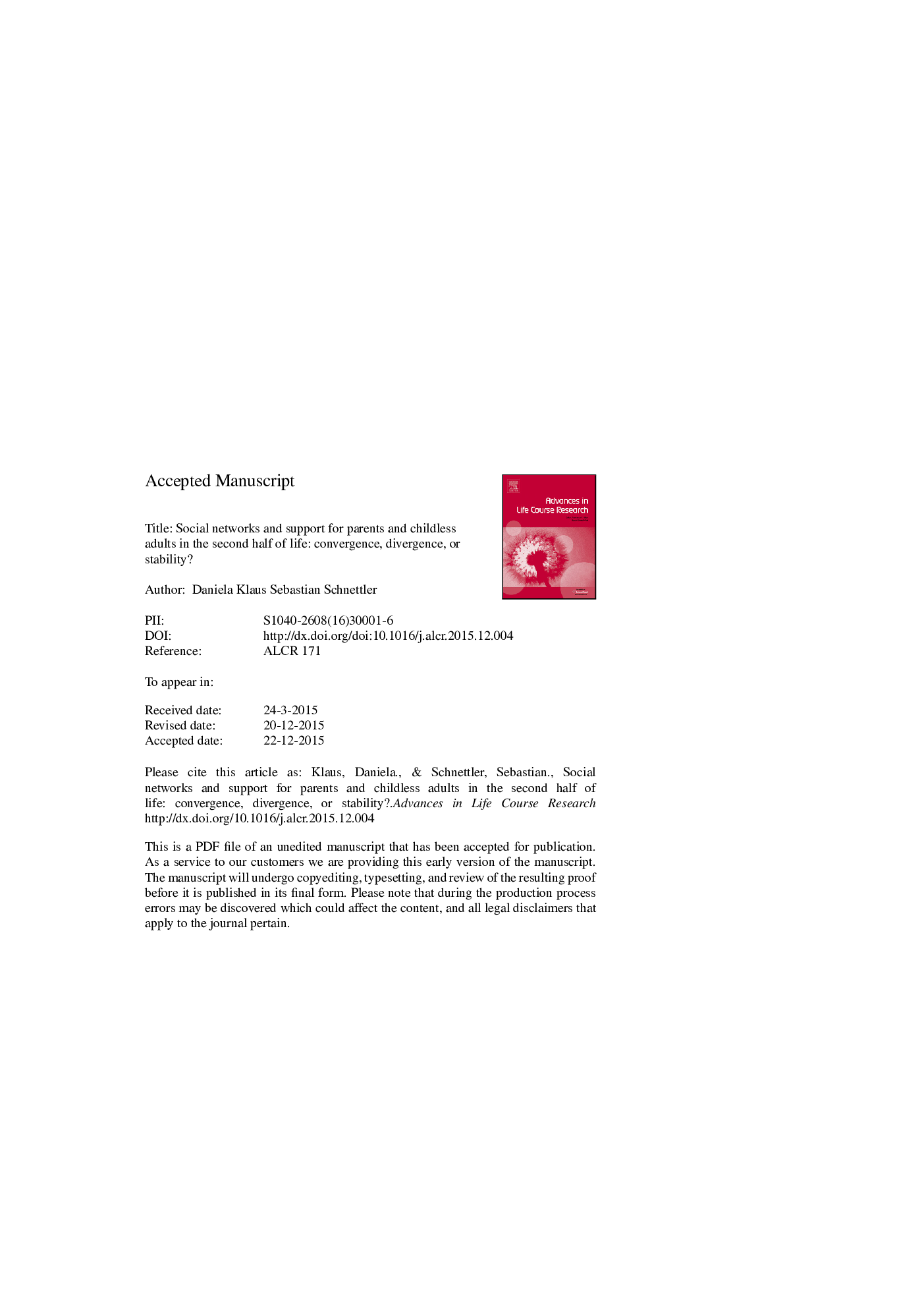| Article ID | Journal | Published Year | Pages | File Type |
|---|---|---|---|---|
| 6784844 | Advances in Life Course Research | 2016 | 35 Pages |
Abstract
Building on previous cross-sectional research that shows childless individuals tend to have smaller networks and receive less support than parents in later life, we compare the dynamics of network size and support patterns for these two groups during the second half of their lives, that is, starting at age 40. We expect that childless older adults are likely to have more friends and collateral kin in their networks than parents, and that, due to the different composition of their networks, they experience a steeper decline in network size and available support than parents. Based on data from four panel waves of the German Ageing Survey (between 1996 and 2011), and employing fixed-effects panel regression models, we find a surprising degree of similarity in the network and support trajectories of parents and childless adults as they age. Childless adults neither experience a steeper decline in network size nor a greater reduction in social support than parents do. Compared against previous research, our findings counter the rather one-sided negative view of childless adults that depicts them as socially isolated and utterly lacking in support. Our results further provide indirect evidence that some childless people not only successfully substitute friends and collateral kin for children and lineal kin, but also seem to have ties that are more efficient in providing them with support. Limitations of our sample size prevented us from conducting a gender-specific analysis and from studying care giving as type of support that is often provided through social relationships in late life.
Related Topics
Physical Sciences and Engineering
Mathematics
Statistics and Probability
Authors
Daniela Klaus, Sebastian Schnettler,
